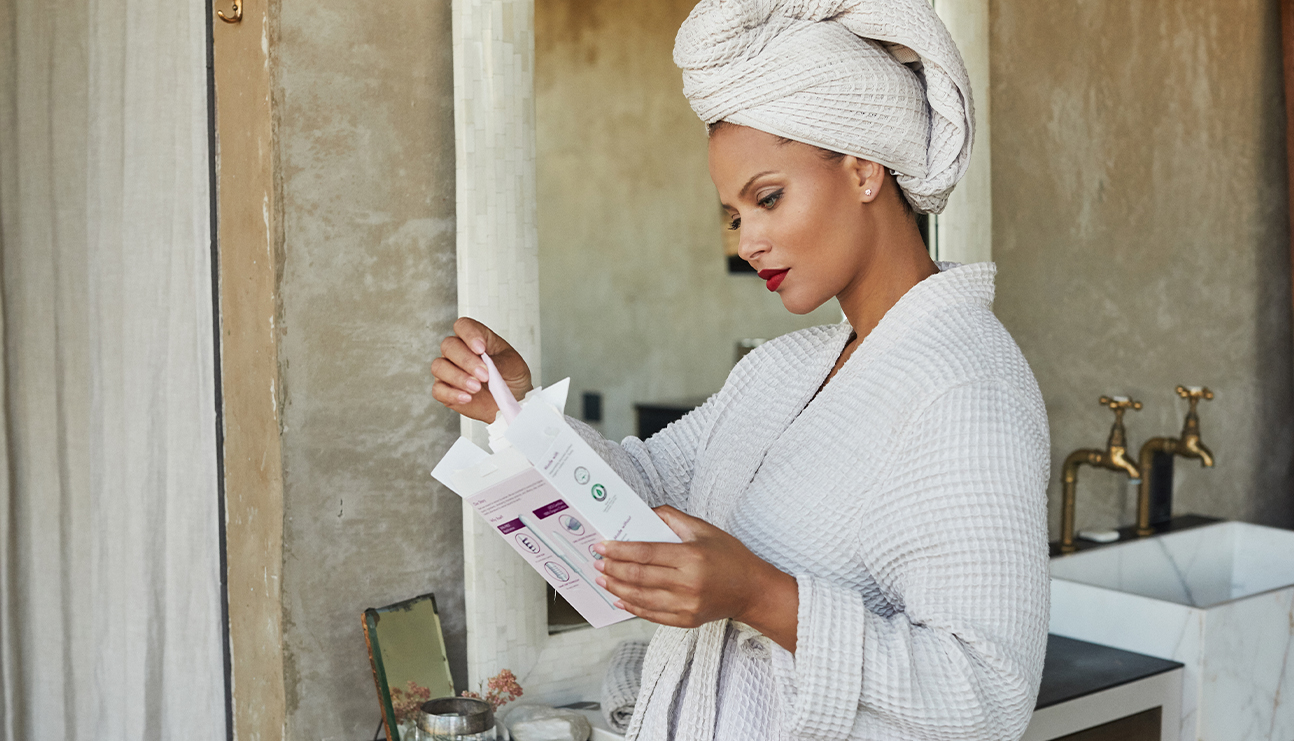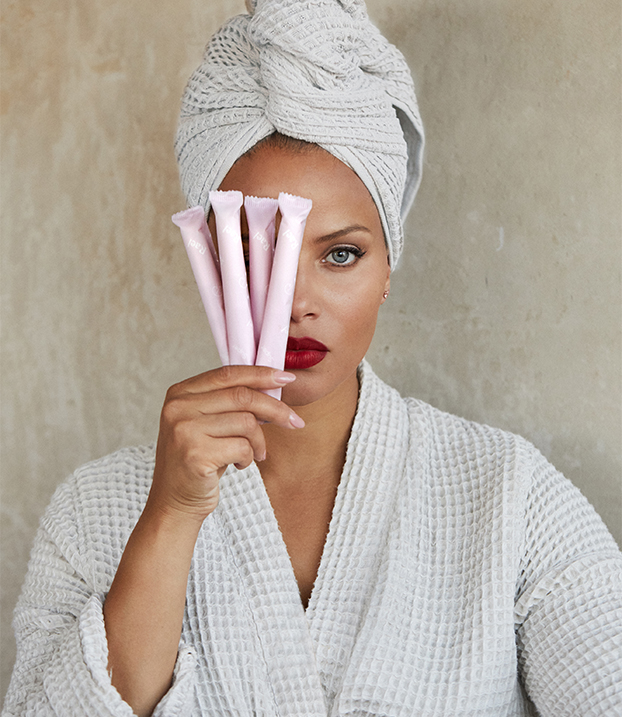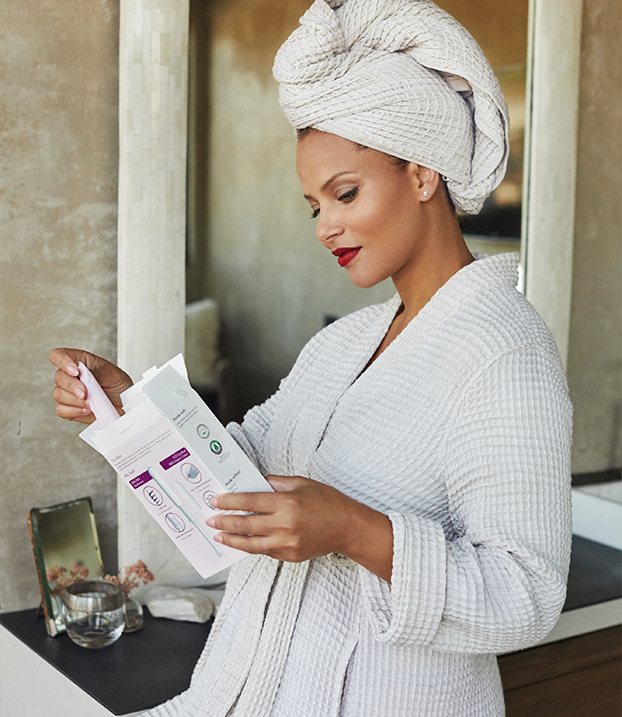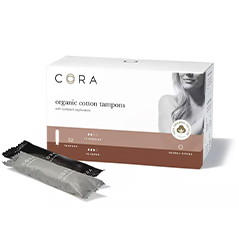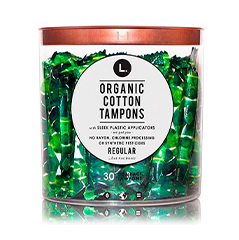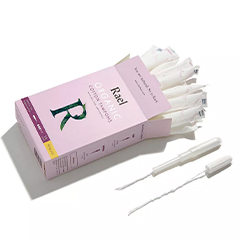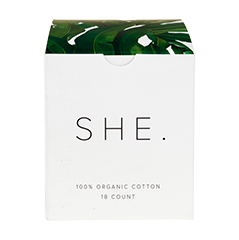5 Reasons to Make the Switch to Organic Tampons
Denise Vasi
We spend a lot of time focused on the organic food we eat, the clean skincare and make-up products we put on our bodies, and even the non-tox cleaning solutions we use in our homes, but what about the tampons we insert into our bodies? Most women grow up using a conventional tampon brand and stick with it into adulthood without ever thinking much about it, without ever questioning their ingredients. In an average woman’s lifetime, she can use up to 12,000 tampons and the first United States law mandating that tampons include a detailed ingredient list only just passed in October of 2019—thank you, New York.
I was shocked to find out via an Instagram poll that so many of our MAED community members were not using organic tampons. My concern has always been the potential exposure to toxins and chemicals like dioxin and glyphosate, but there are other reasons to go organic with your feminine hygiene products.
Here’s why I always choose organic tampons and why you should too.
Organic Tampons Are Made Without Toxins and Synthetic Fibers
Regular tampons are made with synthetic fibers and can contain GMOs and pesticides. There’s also reason to believe that the cotton used by conventional brands is repeatedly treated with the herbicide glyphosate. If you don’t eat food with glyphosate and you don’t put it on your lawn, it’s probably not a good idea to insert it into your vagina, especially since research suggests that the vagina is highly absorbent.
Organic Tampons Are Better for the Environment
Think about the number of tampons you go through in a year and how many menstruating women there are in this country, plastic tampon applicators are found on beaches, in the stomachs of dead seabirds, and when they break down in the ocean they turn into microplastics that are ingested by fish and other sea creatures.
An organic tampon takes only six months to degrade in a landfill. If you’re into composting, you can even compost the tampons from most organic brands right in your backyard compost bin.
Organic Tampons Support Organic Farming
It’s crucial for us as consumers to support organic farming, whether it’s for our food, our clothes, or our tampons. Organic cotton farming is healthier for farmers because it does not require them to apply toxic pesticides and herbicides to crops—plus, most organic tampon manufacturers are committed to sourcing cotton from farms that pay workers fair wages. With organic farming, biodiversity is supported, water is conserved, and the health of the soil is maintained through composting and crop rotation.

… if reusable pads sound a little out of your comfort zone, then at the very least, I hope you’ll consider cleaning up your fem care by making the choice to buy organic.
Organic Tampons Are Super Convenient
Ladies, take note: there are a ton of subscription services that will deliver organic tampons straight to your door. What’s even better, many of these subscription services do amazing things to support women all over the world. LOLA and Rael provide their products to homeless women, Cora donates pads to girls in need in developing countries, and L. supports women’s health education and entrepreneurship.
Organic Tampons Are Less Irritating
Conventional pads and tampons are typically made with fragrance. Aside from the absurdity of adding perfume to something you literally bleed into, let’s talk about the fact that “fragrance,” that all-encompassing word that’s short for “slew of mystery ingredients used to make things smell sort of nice,” can be super irritating. Women with sensitive skin or chemical sensitivities find that organic tampons are much more comfortable for them to use.
Of course, in addition to organic tampons and pads, there are other options to help you detox your period. Some of these include menstrual cups, reusable pads, period-proof underwear, and sponges. I look forward to trying these newer options out soon, and I hope they pique your curiosity too, but if reusable pads sound a little out of your comfort zone, then at the very least, I hope you’ll consider cleaning up your fem care by making the choice to buy organic.



